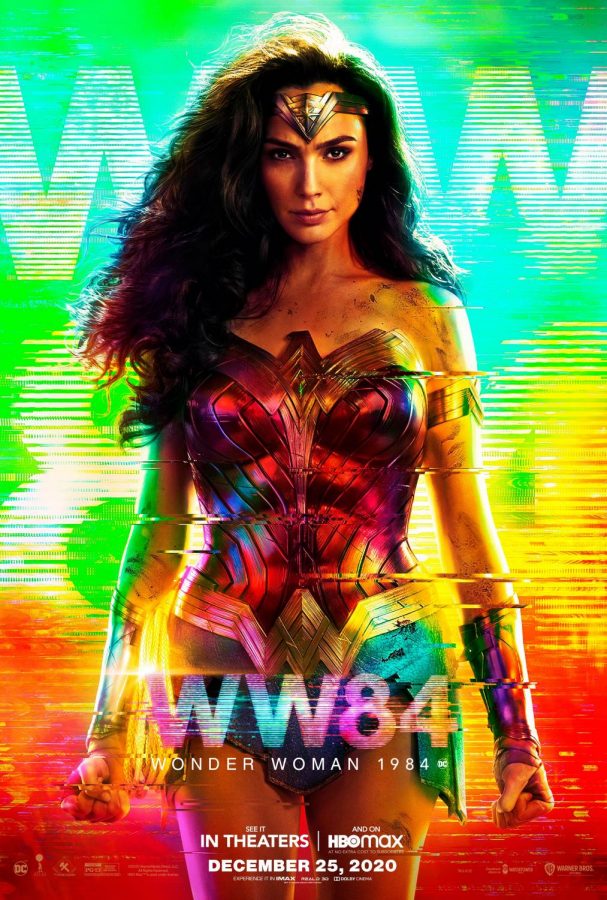‘Wonder Woman 1984’
DC disappoints with eccentric sequel
March 4, 2021
In the midst of a global pandemic, my family did what any family would do and streamed Wonder Woman 1984 from home on HBO Max. After watching the first Wonder Woman movie three times in theaters and multiple times at home, I went into WW 1984 with high expectations.
Just as every DC movie, WW 1984’s theme exceeds villains, fighting and action and tries to address a deeper issue. In this case, the issue was the ethics of having the power to get anything you want. However, while I find the message of WW 1984 inspiring, I ultimately feel like the actual plot of the movie is lackluster and borderline random, especially compared to the first Wonder Woman movie.
Set in the ’80s with vibrant colors and funky design, WW 1984 initially surprised me with its extreme contrast to the first Wonder Woman movie, which is set in World War I. Starting with back-to-back exhilarating action scenes, WW 1984 gave me high hopes at first, until Kristen Wiig’s character Barbara Minerva was introduced. Completely unnecessary to the movie, Wiig’s character pulls away from the central tension between Wonder Woman (Gal Gadot) and Maxwell Lord (Pedro Pascal) and practically serves as comedic relief with the ridiculousness of her character. After Lord grants her wish to become an apex-predator, Minerva converts into her new identity, Cheetah, and mainly functions to fight Wonder Woman in action scenes but nothing more.
Another side character who took away from the primary plot was Steve Trevor (Chris Pine), Wonder Woman’s love interest who died at the end of the first movie, who returned in the sequel. After Wonder Woman wishes for Trevor to still be alive to the Dreamstone, his soul comes to life in another man’s body. Ultimately, Trevor’s presence serves as an internal battle for Wonder Woman as she decides whether to destroy Lord and the Dreamstone or to keep Trevor alive. Overall, Pine’s character is barely involved in the central conflict between Wonder Woman and Lord and should have been incorporated into the storyline in a different way or not at all.
With several side plots that make Wonder Woman and Lord’s conflict confusing, I was even more perplexed by the hopeful and uplifting message behind the action. Following the bleak and bittersweet ending to the first Wonder Woman movie, WW 1984 almost seemed out of place and like part of a separate series. But at a deeper look, I think DC’s motivation behind WW 1984 was to create a political statement. With Lord representing selfish wishes and greed and Wonder Woman epitomizing truth and benevolence, I do not think it is a coincidence that DC released WW 1984 in the midst of an election and pandemic. The theme of WW 1984 is to consider other people before yourself and not play into self-serving desires, which is a message I believe everyone can take away from after this year.
Although the plot of WW 1984 seems odd and unclear at times, the movie’s timely and hopeful message somewhat redeems the movie. With HBO Max costing $14.99 per month, I cannot say that WW 1984 is worth the price. However, with several cult classics moving from Netflix to HBO Max in January, such as “Gossip Girl,” “The Notebook,” “The West Wing” and more, HBO Max is on the rise and worth the investment. While WW 1984 is nowhere close to my favorite DC movies, if you already have HBO Max and need a movie to watch, then WW 1984 may just be worth your time.





